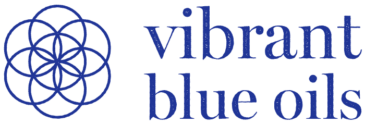Essential oils can be used to support different elements of your immune system, including your mast cells, an important inflammatory cell that helps fight infection and repair your body.
Mast cells are a type of white blood cell found in your tissues and organs, especially at places where the body interfaces with the environment, like the skin, lungs, and digestive tract. They also reside in the joints, bone marrow, and central nervous system.
Mast cells perform many essential functions in the body, releasing different chemicals – like histamine – when they sense something harmful to the body, like allergens, pathogens, mold and other irritants.
While best known for their role in allergies, mast cells are also involved in the formation of new blood cells, wound healing, the development of immune tolerance, maintenance of blood-brain barrier function, defense against pathogens, preventing microbes from entering tissue spaces and regulating inflammatory responses during injury, infection or neurologic events.
In response to environmental changes or insults to the body, mast cells release mediator molecules that influence the behavior of other cells and tissues in an effort to maintain the health and balance of your body.
For example, mast cells release proteins that are concentrated near blood vessels and in the respiratory tract where they work together to increase blood flow and help remove bacteria from the bloodstream. These proteins also inhibit inflammation by preventing cytokines. Mast cells also support your body’s immune defense against parasites (such as worms).
When mast cells are unstable or not functioning properly, excessive histamine in the body presenting as Mast Cell Activation Disorder (MCAD) or “histamine intolerance”
Histamine Modulation
Histamine supports your body’s natural response to pathogens – they create inflammatory responses to signal and boost the immune system’s fighting response.
The release of histamine is a normal defense by your body that causes the contraction of smooth muscle and the dilation of capillaries (allowing white blood cells and other proteins can better target and attack foreign bodies in the affected tissue), but an exaggerated histamine response can bind to cell receptor sites resulting in irritation and chronic inflammation.
Histamine levels are designed to be kept in balance by two enzymes that breaking down excess histamine and prevent allergic reactions. One of these enzymes lives in the lining of our intestines and must be present to maintain balanced histamine levels in the gut. A damaged gut lining compromises the production and secretion of this enzyme allowing histamine to build up and wreak havoc throughout the body.
The goal is to balance, not block, the histamine response Ideally, you want to modulate histamine release, not eradicate it. Excess histamine can build up in your body and contribute to numerous overactive histamine responses like being allergic to and reacting to everything, including taste, touch, smell and even things that are not inherently dangerous, such as food or pollen. Symptoms present when too much histamine builds up in your body because of an inability to break it down.
Symptoms of Mast Cell Activation and Histamine Intolerance
When mast cells are out of balance and go unchecked, the chemicals they release can cause damage systemic damage including:
- Itchy skin, eyes, ears, and nose
- Surges of anxiety
- Digestive problems
- Nasal congestion
- Red, watery eyes
- Eczema or Hives
- Feelings of panic or extreme anxiety
- Fatigue, irritability, or confusion
- Joint and muscle pain
- Swelling of the soft tissues on the face, mouth, or throat
- Low blood pressure
- Chest pain
- Rapid heart rate
- Tinnitus (ringing in the ears)
Mast Cell Activation and Histamine Intolerance
When your immune system becomes hyperactive, mast cells release excess histamine and other chemicals that affect every organ system in the body. Remember that mast cells are found in all human tissues, and mast cell mediator receptors are found on almost every cell in the body, which means that over-activation of mast cells has the potential to affect every organ system.
Mast Cell Activation Disorder presents clinically as a chronic, debilitating multisystem allergy and inflammatory symptoms, and has been associated with obesity, diabetes, skin conditions, irritable bowel syndrome (IBS), depression, and more.
Parasympathetic and Histamine Over-activation
Stress contributes to mast cell activation and histamine release.
The parasympathetic nervous system controls mast cells and makes sure they stay in check.
Your parasympathetic nervous system serves as your anti-inflammatory pathway (via your vagus nerve), making communication between your parasympathetic nervous system and your mast cells critical to controlling your inflammatory response.
When your sympathetic nervous system is over-active and you are stuck in an ongoing state of emergency, your mast cells will feel like they are under attack as well. They will release histamine as a response. This ongoing stress-related release of histamine can cause histamine intolerance and ongoing symptoms.
Activating your parasympathetic nervous system can help to reduce stress, calm mast cell activation and histamine release, reduce inflammation and to bring your system back to balance.
Research on “Electrical stimulation of the vagus nerve modulates the histamine content of mast cells in the rat jejunal mucosa” demonstrates that vagus nerve stimulation may help to reduce stress, decrease mast cell activation, lower histamine release, and improve histamine-related symptoms. The research found that “mast cells are subject to nervous control.”
What’s more, stimulating the vagus nerve may regulate mast cells in your gut. A 2012 study published in the American Journal of Physiology found that certain fats may cause the nutritional activation of the vagus nerve, which may help to regulate mast cell activation and reduce your histamine-related gut problems
Additional research published in Neurology, found that vagus nerve stimulation may help to reduce histamine-induced symptoms, like itching.
Essential Oils for Histamine Modulation
There are many essential oils that can help with inflammation and act as natural antihistamines to help stabilize mast cells and relieve the symptoms of heightened histamine levels. Including the oils in my Histamine Balance™ blend.
These essential oils are often derived from herbs that possess powerful antihistamine properties and the essential oils concentrated from these herbs often contain those same beneficial properties.
One of the key essential oils in our Histamine Balance™ comes from the herb rosemary. Rosemary has detoxifying properties and can gently assist the liver in releasing toxicity that may be the underlying cause of histamine over-reactions or mast cell activation.
Because essential oils are gentle natural solutions they can provide you with gentle relief, without throwing your body’s natural system off balance.
Essential oils with antihistamine properties are an ideal natural approach to the inflammatory response of histamine, as they can naturally stabilize mast cells and easily permeate our nasal cavities to loosen mucus and promote drainage.
Histamine Balance™
Histamine Balance™ blend contains a proprietary formulation of organic and/or wild crafted essential oils of Blue Tansy, Roman Chamomile, Lavender, Manuka, and Spruce, but we find them to be non-triggering in most because of the many other ingredients – including Rosemary, Peppermint, Ravensara, and Vetiver – that work together to prevent histamine release. Blue Tansy, in particular, is known for neutralizing histamine and helping to control allergic reactions.
The essential oils in the Histamine Balance blend are uniquely suited to modulate excess histamine excretion, balancing histamine levels and helping to reset the immune response and reduce allergic reactions.
READ THIS NEXT: Essential Oils for Histamine Balance
Parasympathetic®
The parasympathetic nervous system controls mast cells and makes sure they stay in check.
Activating your parasympathetic nervous system can help to reduce stress, calm mast cell activation and histamine release, reduce inflammation and to bring your system back to balance.
Our Parasympathetic® blend contains clove and lime essential oils. I know that clove essential oil has been vilified as a “mast cell destabilizer” and “histamine liberating” – meaning they can liberate histamine and cause mast cell reactions. This finding conflicts not only with my own personal experience and observation, but that of many of my clients, so I decided to dig deeper.
While I could not find any research to support this, I did find this Histamine Dr. article on “7 High Histamine Spices to Avoid” which notes that certain “high histamine spices” including clove should be avoided
The article extolled many powerful anti-inflammatory benefits of clove, noting that “Cloves contain a powerful compound called eugenol, an antioxidant that may improve fatty liver and abnormal blood lipids.”
(Study) along with “modest quantities of the flavonoid quercetin, which has anti-inflammatory properties.” (Study)
The concern over the clove herb was related to “compounds called benzoates that trigger histamine release” and “Erucic acid, a fatty acid, is another compound found in clove oil that also causes inflammation, which is why people with histamine intolerance should avoid cloves and its oil.”
I was curious so I looked up the chemical composition of clove oil on pub med.
It does contain 0.01% of both Benzyl benzoate and Ethyl benzoate – compared to 88.8% Eugenol and Erucic acid was not mentioned as a constituent of clove oil.
I double checked my work with this study Chemical composition and antioxidant properties of clove leaf essential oil – PubMed which also failed to mention Erucic acid, so I cannot find research to back up the concern that clove essential oil is contra indicated for histamine, but I welcome any additional research you might find and highly recommend Parasympathetic as a powerful vagus nerve stimulation tool.
Learn more about the other benefits of clove and lime here.
Featured Oil:
Ready to get started? Click the links below to order today:
References:
- https://pubmed.ncbi.nlm.nih.gov/8742478/
- https://pubmed.ncbi.nlm.nih.gov/23812038/#
- https://pubmed.ncbi.nlm.nih.gov/12105316/
- https://www.histaminedoctor.com/7-high-histamine-spices/
- https://www.liebertpub.com/doi/abs/10.1089/jmf.2013.0033
- https://pubmed.ncbi.nlm.nih.gov/25182278/
- https://www.ncbi.nlm.nih.gov/pmc/articles/PMC8588428/
- https://pubmed.ncbi.nlm.nih.gov/16910723/




